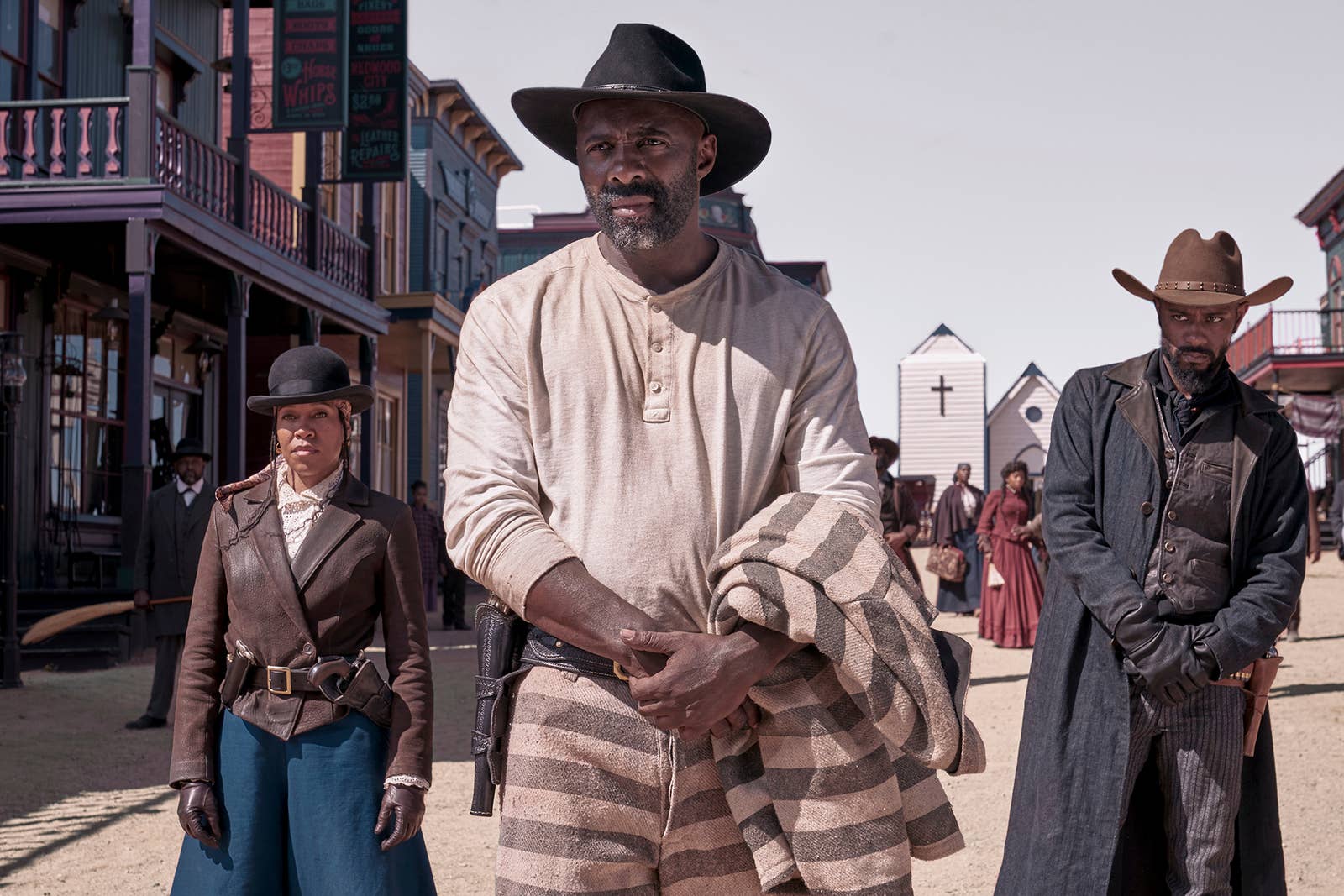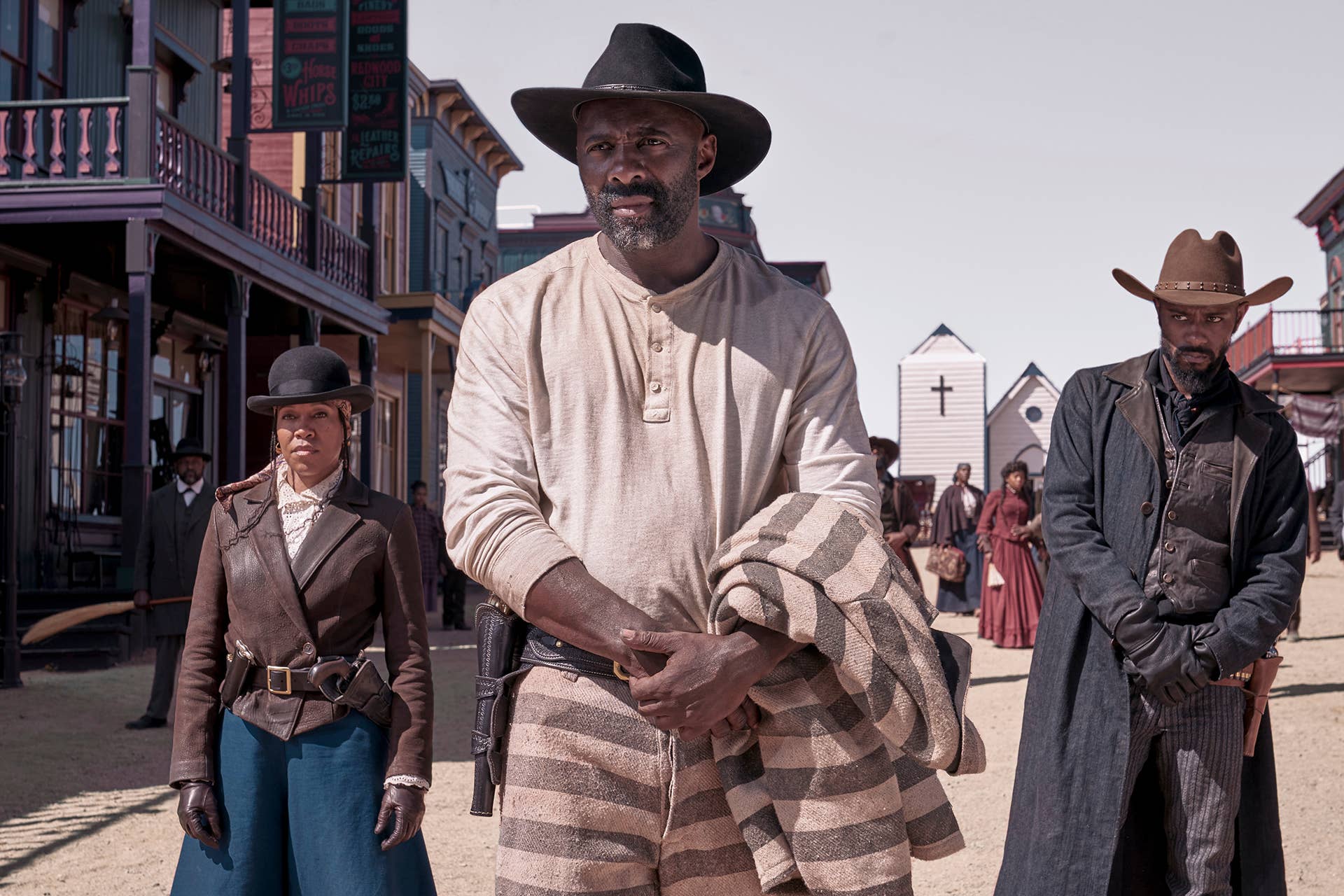
A white rugged face, a Stetson hat, an acclaimed sharpshooter gripping a leather gun holster—boots, a lasso, and the cahoots of men: Hollywood’s depiction of cowboys built an image of the Old West that exists as some of the most heroic endeavours of the white American man. Western flicks captivated the U.S. film industry from the early 1900s to the late ‘60s, respawning in times where America needed an injection of imperialistic spirit. It has ignited subgenres that expand on the traditional approach of a Western; films like The Good, The Bad, The Ugly (1966)—a spaghetti Western—retain a vivid sense of morality but moved away from American filming styles. In The Searchers (1956), an anti-hero leads watchers away from their usual understanding of the protagonist’s vantage point.
There’s a range of even more complex stories, as we are now seeing with a spread of revisionist Westerns, considering the recent revision of The Magnificent Seven (2016), The Revenant (2015) and News Of The World (2020). Train robberies, the journeys of wantaway men escaping the East or army duty, and stories about famed outlaws like The Assassination Of Jesse James (2007)—one thing remains true of all of these interpretations of Westerns: that Black people’s existence and contributions to such periods is grossly overlooked. Westerns have always looked to evolve and expand on the unshone stories, but what they haven’t produced yet is a commendable take on Black cowboys and characters from the Old West.
Until now, that is. Enter The Harder They Fall (2021), an ensemble cast of Black actors, in a Black town, with a hard-hitting storyline not led by trauma or enveloped by race relations but one that blends the chemistry of awesome characters and their actors.
The Harder They Fall follows Nat Love—a real Black cowboy, played by Jonathan Walters—on his adventure to reassemble his gang to challenge the murderer of his parents. Nat Love was dubbed with the nickname ‘Deadwood Dick’, for his skills in rodeo, and ‘Red River Dick’ applauding his marksman ability. He even drank with Billy The Kid. He was a true cowboy, in every sense of the tradition. The cast includes Zazie Beatz as Stagecoach Mary, the first Black female star route mail carrier; Delroy Lindo as Bass Reeves, America’s first ever Black Deputy Marshal; and RJ Cyler as James Beckwourth, the “mountain man.”
Regina King plays Trudy Smith—a fictional character—and brings her to life, while Lakeith Stanfield plays the infamous Cherokee Bill. Idris Elba finalises a star-studded cast by epitomising the Rufus Buck gang as a character. Several of the real characters were taken from different times and places over the Old West to construct the story, and while not accurate by any timeline, the intention is there.
Black people in the Wild West played a pivotal part in igniting the early cowboy tradition: a style of ranching adopted from Spanish settlers in the Americas. They were referred to as ‘vaqueros’—horse-riding livestock herders—aka cowboys. Due to the changes in environment, the tradition transformed to accommodate the new geographical demand of America. The early encounters of those Spanish settlers and Americans sparked the livelihood we now know as being a cowboy. Most of the ranch owners were Spanish/Mexicans, many of the ranch hands were Native American, and a majority of the cowboys doing the hard labour were in fact Black slaves.
Larry Callies, one of the founders of the Black Cowboy Museum in Texas, claims that the original term for cowboys was ‘cowhands’, which was a derogatory term used to refer to Black cowhands. During America’s infancy, many of the migrants travelling westward included over 100,000 Black people. Demographic reports of those times suggest 30% of Texas’ population in the early 1800s were Black. White ranch owners’ slaves picked up all the hard labour; they herded cattle, had the main responsibility of breaking horses, and generally ensured that the ranch was functional. They were expert trackers, having to transport cattle across long distances, they endured raids from Native Americans protecting their lands, and had many tales of their own.
During the civil war, white ranch owners travelled to fight while their slaves maintained their ranches. Upon their return, due to the emancipation proclamation, they no longer had any free workers. Black people migrated from the Old South to set up new lives in the West. The point of war is something expressed in many Westerns, such as Bad Company (1972) or Bend Of The River (1952), but the changes of how Black people lived were not. The wealthy white ranch owners had none of the skills the slaves did, and the best were now free to hire available Black cowboys. If the wealthy and simple land owners no longer had slaves, they then had to pick up the hard work for themselves or hire others. Of course, it would be silly to extend the claim onto everyone, as many white Americans migrating westward were escaping debt or duty.
But accounts from former Black cowboys, their biographies and tales recorded in books, build a picture that Hollywood’s presented to us for decades with no colour. Alongside their experiences, many Black cowboys became chuck wagon cooks, songsters, and held respect for their occupation, but they still suffered from racism. Areas and opportunities were still segregated. White coworkers made working on ranches extremely difficult. Despite all of this, they were still in high demand. Said experiences bred hardened Black cowboys—such as Nat Love, Bass Reeves, Bill Pickett, Bose Ikard and many more buried in the past—whose likeness was taken without any credit.
For instance, Lone Ranger (1949) was a TV show famed for its mysterious yet morally upright ranger of no name—just a gun-toting, justice-upholding, lonesome man roaming the land. Lone Ranger was based on Bass Reeves’ time as a Black Deputy Marshal, who was widely respected. He made over 3,000 arrests in his illustrious career, killing over a dozen wanted outlaws, and even arrested his own son for killing his wife. He often went undercover to track down criminals and, surprisingly, he was never injured during one of the most contentious eras and lines of work one could do. Reeves was a legendary lawman, robbed for his likelihood and whitewashed, but he’s not the only one: James Beckwourth, the explorer and fur trader, also had his likeness taken and placed in Westerns. Similarly, Bill Pickett’s legacy has been overlooked. Pickett was a cowboy and creator of bulldogging, otherwise known as steer wrestling. It’s a tradition, a pride of rodeos, and is still played today.
Buck & The Preacher (1972) is a film that shines a light on an African-American’s journey to the West after escaping the reconstruction of the Southern states. It steps ahead of others like The Outcasts (1986), a TV show where a confederate officer teams up with a former slave, but both crave a sense of normality for these characters as the strong reference points toward their Black characters’ pasts of servitude. It’s almost as if Black characters simply can’t exist in these times without it being intertwined with racism’s imposition. Indirectly, it doubles down on white supremacy.
Django Unchained (2012) was the first time audiences saw a Black cowboy as a main character of a Hollywood film. Quentin Jerome Tarantino’s eccentric approach to filmmaking draws from real settings, but injects characters with an aura of fantasy. They are fun, action packed, chaotically gruesome films, like a child bashing toys together. Tarantino loves the N-word more than your favourite rapper. He even had no problem creating a character like Samuel L. Jackson’s an Uncle Tom, who expressed an uneasy level of self-hate. Mandingo fighting, the close-ups of the slaves’ fear-stricken faces, and the celebration of racists being cut down by a vengeful justice—it was a complex but undeniably powerful film that broke barriers. After Django, discussions regarding Black cowboys and the portrayal of characters in these films arose.
Not long after, 12 Years A Slave (2013) captivated audiences with a chilling and heartbreaking portrayal of a slave story. It was gut-wrenching, blood-boiling and masterfully made, and helped pave a way for more discussions to be had about race and representation in Hollywood. Questions like: when we create stories about Black people, must they always be attached to racism? How can we represent our histories if Hollywood only funds our trauma? Black Trauma Porn has very much become its own genre, where our realities are proposed as entertainment and the honest effort of building something that represents those realities goes missing. Representation comes in many forms, and for Black people in the Old West—likewise with Black people in all underrepresented eras—we want stories that uphold normality. That is all.
In a Q&A with The Harder They Fall stars Regina Hall, Jonathan Walters and director Jeymes Samuel, they spoke about the necessity in revealing these stories. The power of this film is that sense of long-yearned-for normality, as well as the representation of these characters buried in the past. “Let me bring all these real characters and put them in one place, at one time, like the Avengers, and dead the argument,” said Samuel, when asked about his intentions for the movie. “Swagged-out stories, bad boy music! I wanted to deliver a piece that people could watch and do their research afterward.”
While The Harder They Fall isn’t a biographical account of any of these characters, it serves the intention of changing our gross preconceptions by examples we were forced to digest. The film is a fun, non-traumatising take on these Black characters in a much cooler, smoother way. The job of changing how people perceive cowboys starts with real characters, and I hope The Harder They Fall can inspire a trend in doing just that.
The Harder They Fall hits Netflix on November 3.



